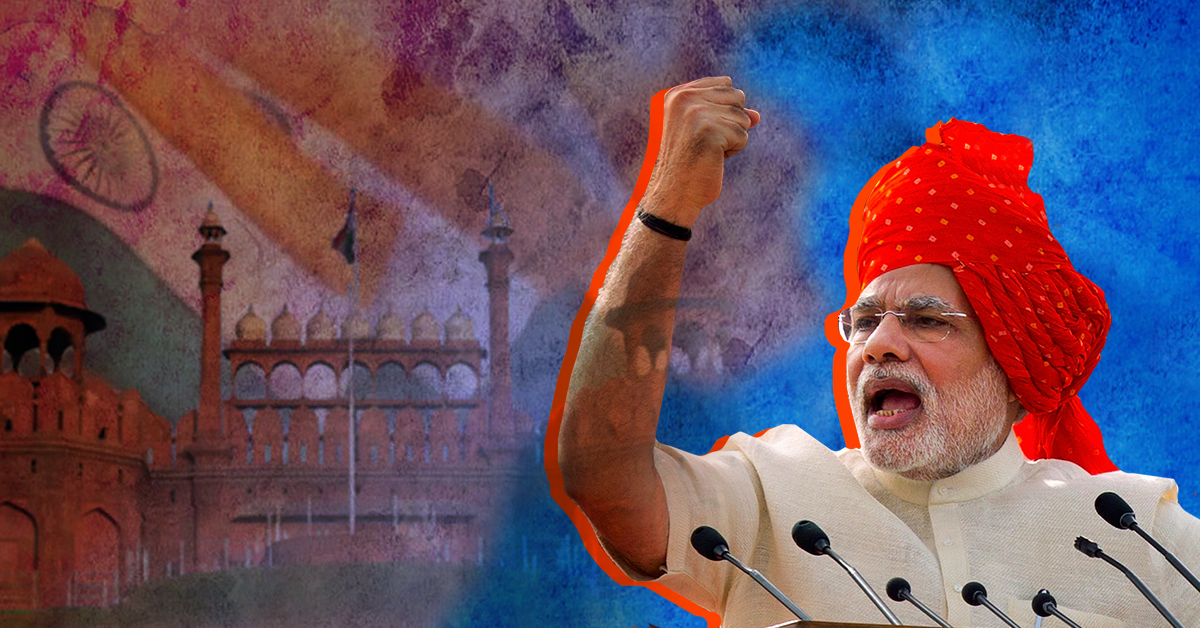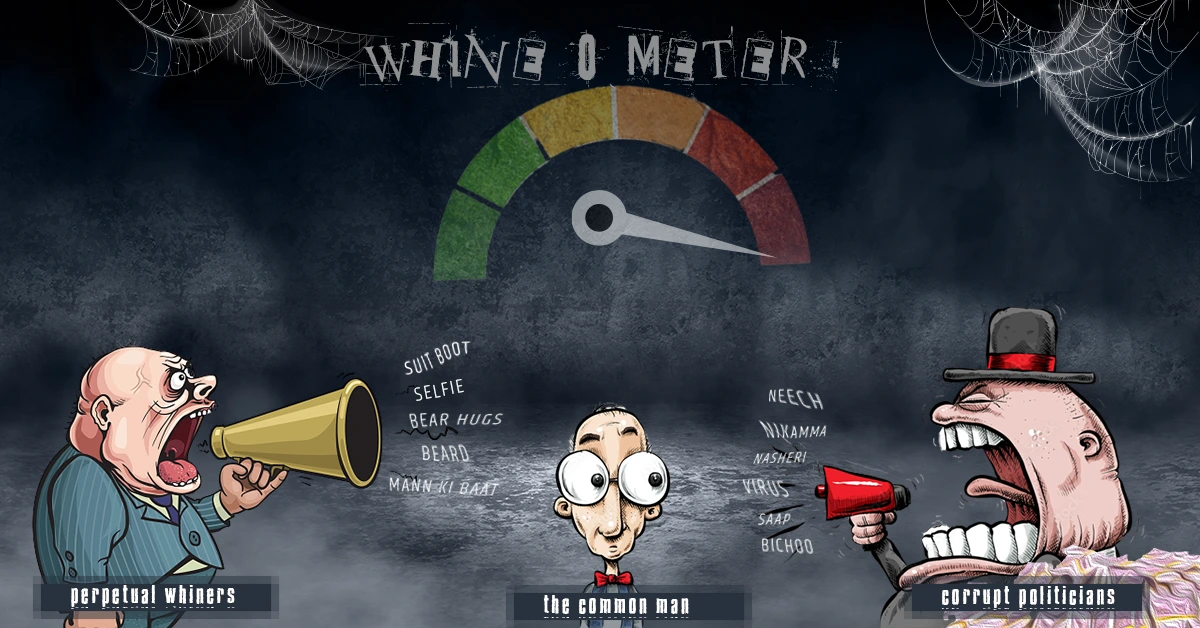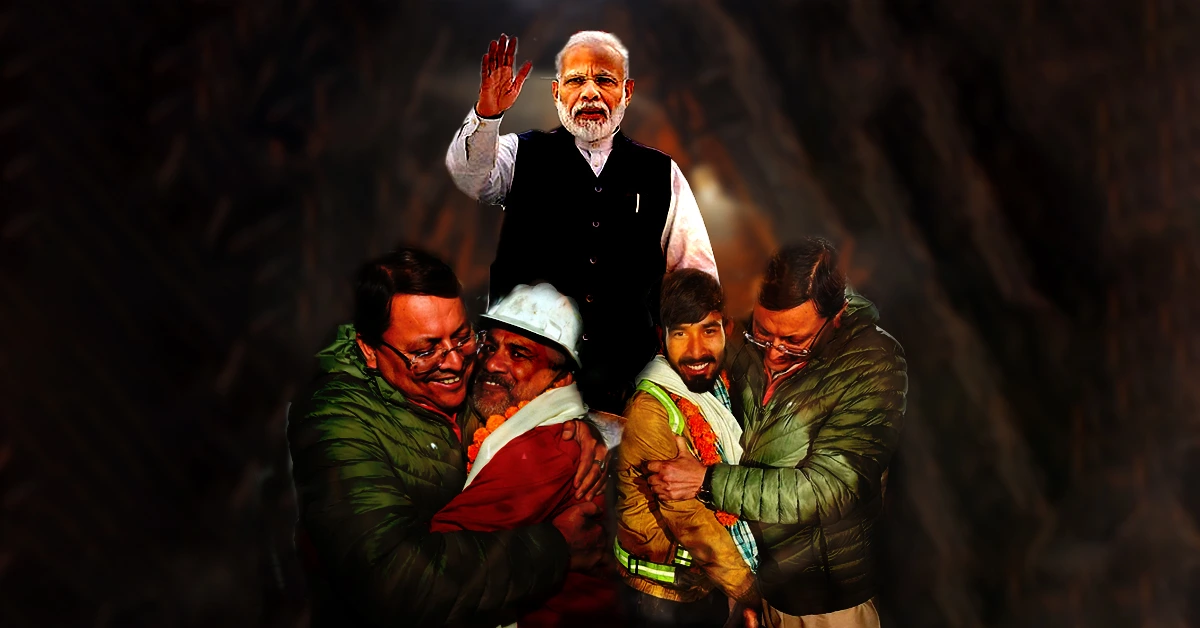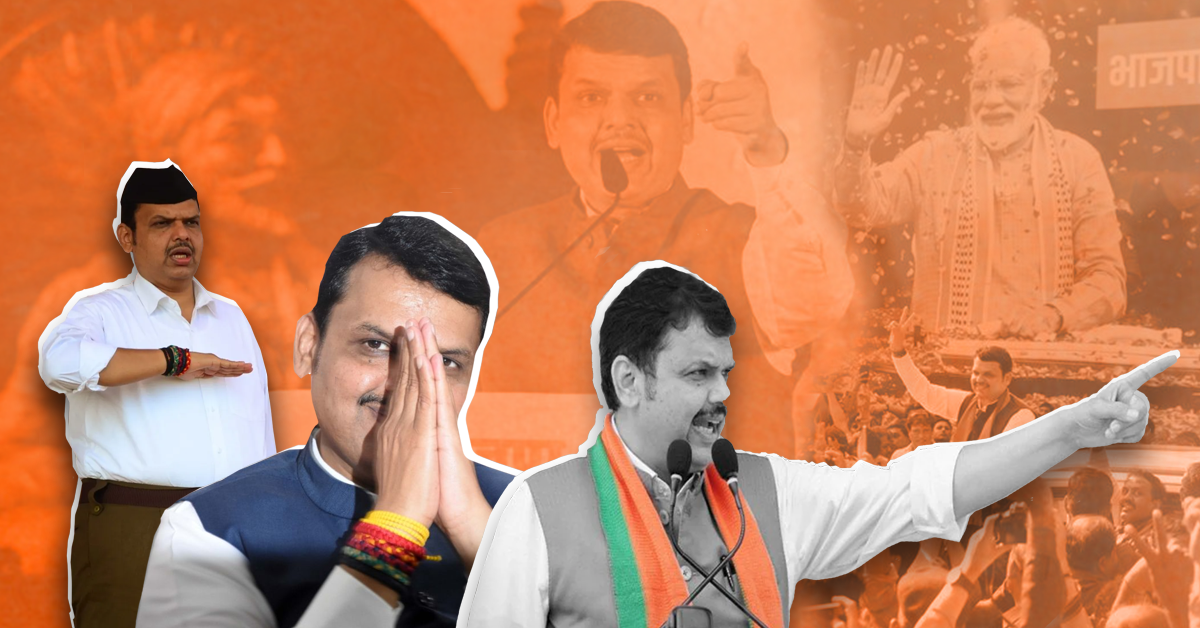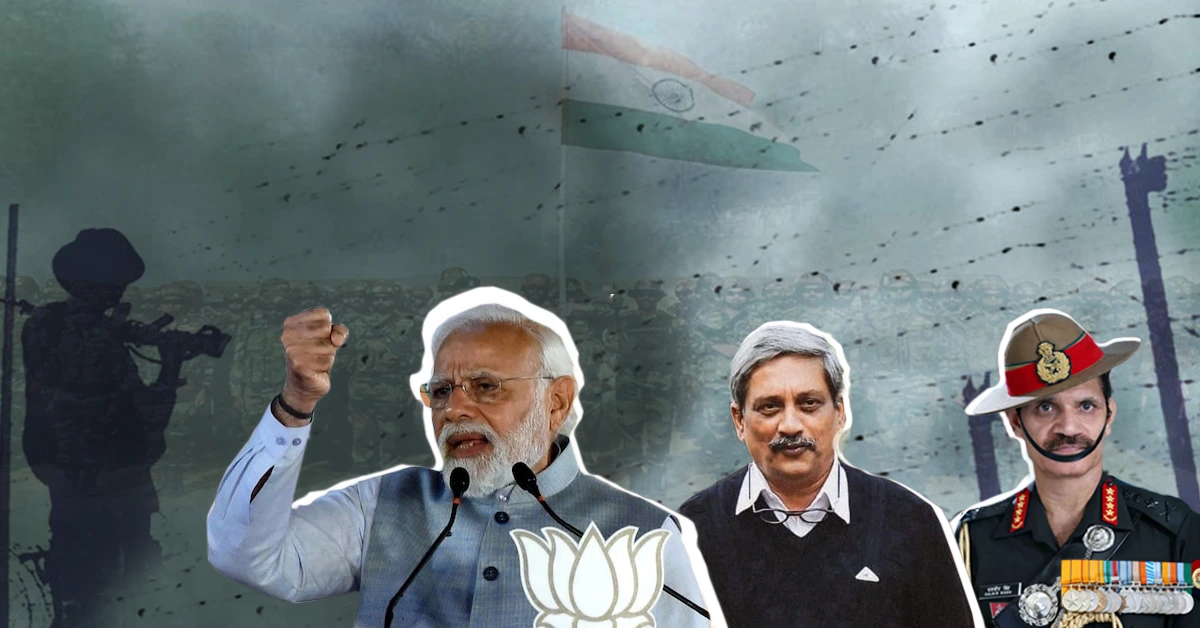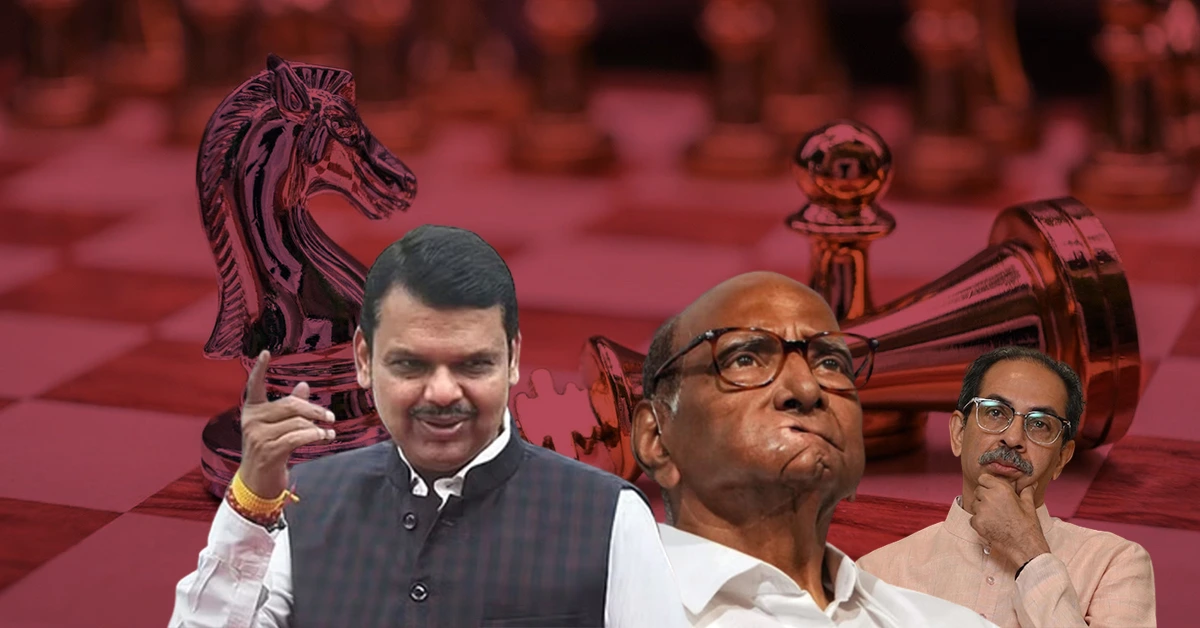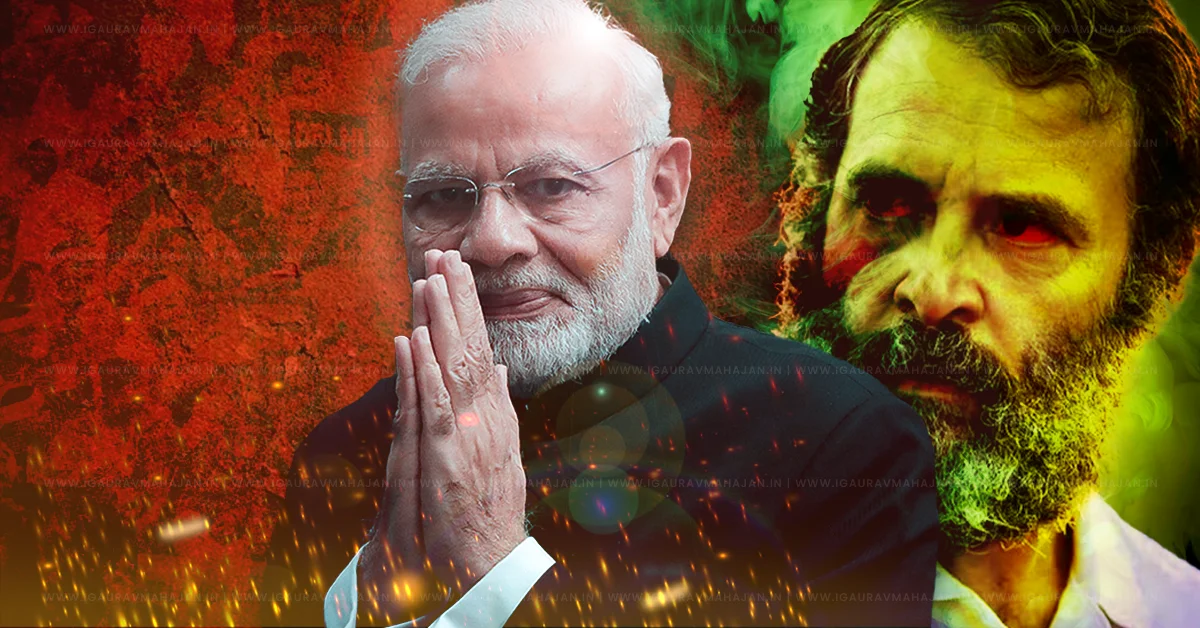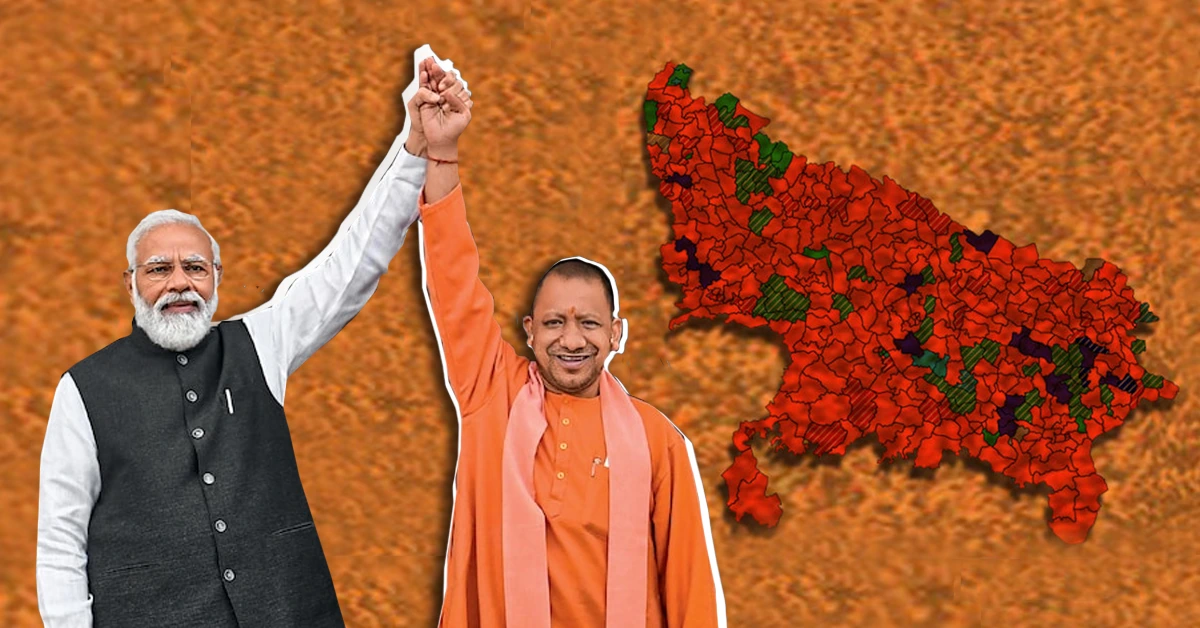A New India started taking shape under the leadership of Narendra Modi. An India that came out of the cusp of indecisiveness and apathy, to a New India testified by the spirit of change.
Moditva: Transforming India
As India turns 75, Modi’s role in development is only evolving and expanding. Only asinine assessments of a pessimist opposition would ignore the crucial role of Modi and the BJP in shaping this decade, and determining the trajectory of the decades to follow.
Read Time: 9 minutes
click play to listen to the article
From a position of ‘Fragile Five’ economies most vulnerable to collapse, India is now the fifth largest economy in the world and the fastest-growing major economy. In 2014, when the people of India gave an overwhelming mandate to Narendra Modi, the Indian economy had come to a crawl and a sense of malaise prevailed everywhere. The previous government was intellectually barren, and fecund only in corruption. But things started to change under Modi. The government of a society that had taken a thousand cuts mutely for decades suddenly oozed self-confidence and decisiveness. The Modi government plugged some horrendous holes in India’s notoriously inefficient and corrupt — the Congress and its Lutyens ecosystem. They in turn got into the business of creating narratives which bore no resemblance to the truth. But the Prime Minister kept focus and made inclusive development a priority, with the interests of the underprivileged at the forefront of his action plan.
Working 17 hours straight every day, Modi has kept all the government machinery — ministers and bureaucrats on their toes since the day he took office. Prime Minister Modi takes personal interest and micro-manages schemes that concentrate on deliverables that the poor could experience, and which raised the quality of their lives in quantum leaps. Through a slate of socially progressive policies, Modi has transformed lives of citizens at a rate faster than any previous government. Prime Minister Modi first shifted gear from poverty alleviation to poverty elimination. There is a significant difference between the two objectives. The first is open-ended, the second has a deadline. Freedom from hunger, homelessness, anxiety, insecurity and the helpless silence that consumes those who have no money even for medicine became priorities of Modi’s developmental agenda.
Narendra Modi knew very well what the previous Congress governments did: that the poor were victims of an unusual, systematic nationwide heist. Their welfare benefits were being ripped off by layers of middlemen. Rajiv Gandhi had famously said that only 15 paise of every rupee actually reached the poor. No one cared to do anything about what had become a generic disease. VS Naipaul in his travelogue, titled An Area of Darkness wrote that one powerful reason for India’s darkness was the stark sight of men and women squatting in the open for their morning ablutions. But instead of providing toilets to the needy, what did the Congress do? They banned the book instead. It did not try and end open-air defecation. Narendra Modi was the first Prime Minister to declare this abject failure a national shame, and he did so from the ramparts of the Red Fort on Independence Day. From fewer than 40% of households having access to a toilet, almost 95% do now. Modi brought in this transformation.
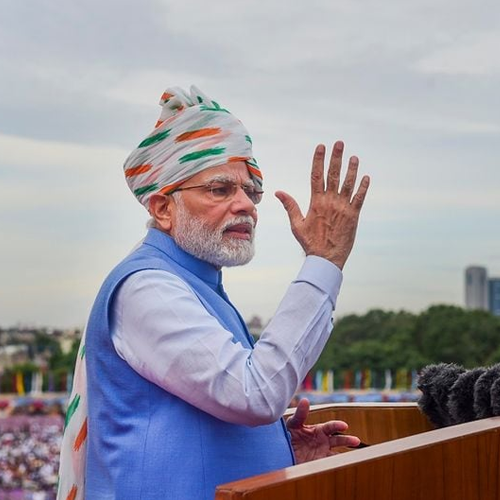
Prime Minister Narendra Modi’s Independence Day addresses have been path-breaking. From speaking on subjects considered to be taboo to issues of the modern world, Modi has instilled a sense of responsibility amongst his citizens through his red fort speeches.
Unlike his predecessors who spoke only about the importance of Gandhi and Nehru, Modi condemned rapes as a source of shame for India and urged for an end to communal violence. He gave the world a call to “Make in India” and announced Jan-Dhan Yojana to promote financial inclusion. He launched the Swachh Bharat Mission, spoke about providing separate toilets for women and promoted the dream of a Digital India. He spoke about measures to tackle black money and corruption, targeted 100% electrification and launched Start-up India initiative to encourage entrepreneurship. From making the country Aatmanirbhar, to being environmentally sustainable while achieving the dream of becoming a $5 trillion economy, Modi has touched upon life aspects important to every citizen.
It is the first time since Independence that the poor and those belonging to weaker sections have become true stakeholders in the Government. Close to all Indian villages now have access to electricity, when less than 40% did when Modi took office. An unprecedented 200 million plus new bank accounts opened, bringing India’s so-called “unbankables” nearer to full integration within India’s formal economy. The JAM (Jan Dhan-Aadhaar-Mobile) trinity is the single most important financial inclusion initiative since Independence. It has reduced leakage and corruption, eliminating intermediaries, middlemen and politicians from dipping into money of the downtrodden. On a broader anti-corruption plank, demonetization dealt a significant blow to black money hoarders. The RERA Act, clamping down on shell companies, the amended Benami Transactions (Prohibition) Amendment Act, eliminating interviews for lower-level government appointments, transparency in coal allocations, broadening of tax bases (both direct and GST) to curb evasion, Government e-Market Place (GeM) and even National Agriculture Market (e-NAM) and urea policy were steps taken to further the war on corruption or reduce intermediaries that till now sucked life out of the poor. Vivad Se Vishwas scheme, faceless assessment and the use of IT to reduce the human interference are taxation initiatives that reign in political and bureaucratic malpractices. Digitization has empowered the poor, eliminated corrupt middle-men and allowed direct deposits of state benefits, social security and pension payments into the hands of the poor.
Even 70 years after India got freedom, a gas cylinder was a status symbol for many. It used to be a part of wedding dowries. Women venturing out to collect fire-wood were often subject to sexual harassment. Besides, according to the WHO, these women had been inhaling smoke that’s the equivalent of 400 cigarettes an hour by using fire-wood stoves. Modi’s Ujjwala Yojana provided LPG connections to around 100 million beneficiaries. There are about a hundred such schemes that improve the daily life of the forgotten. That is why people trust Modi. The expression of people’s trust in Modi can be gauged from the ‘Give It Up’ scheme where for the first time in India, Modi urged well-off people to give up their gas subsidies so as to allow gas connections to be provided to the underprivileged. Over 20 million people voluntarily responded to the call and gave up their subsidies.
In addition, the infrastructure projects being rapidly implemented are not only connecting the remotest corners of the country to the economic mainstream but are also making every day travel faster and cheaper. There has been record FDI inflows. We are seeing rising exports, the GST numbers are good, there is an impressive growth in the country’s startup ecosystem. Policy initiatives on infrastructure development, digitization of the economy, and a push towards rural development have created a conducive environment for inclusive growth. They have ensured that India remained the top-performing economy despite facing the pandemic.
Translating expectations into reality has been Modi’s policy approach. Most visible is the focus on process and scalability instead of short-termism. Modi’s each initiative is carefully planned and executed in project mode. Timelines are adhered to, and synergistic benefits recognized and realized. The Covid-19 vaccination drive is a classic example. Ensuring proper temperature control of vaccines, cold-chain infrastructure across the length and breadth of the country, timely deliveries from the manufacturing plant to the remotest vaccinating centre, supply of needles and syringes, training of vaccinators and preparing for adverse reactions, from quick registration to certificate generation to reminder for next appointment — this was no small task and yet it has been the most successful vaccination drive in the world.
The visible improvements in public services and quality of daily life are at the heart of the Modi’s ever-rising popularity. Modi had pledged to transform the country and he has more than delivered. At this rate, Indians kept poor for election earnings, will soon enough have access to basic necessities—housing, clean water, gas connections, bank accounts, internet and mobile connectivity, road access, and education. For a population of 138 crore, these are remarkable achievements. Unlike the worn-out, uncommitted slogans like, “Congress ka haath garibon ke saath”, Modi speaks the language and aspiration of the millennials — offering them bullet trains, world-class cities, and a country that shines on the world stage. The bold policy directions of Prime Minister Narendra Modi indicate a clear understanding of India’s growing importance in the world, its needs and its potential. As India turns 75, Modi’s role in development is only evolving and expanding. Only asinine assessments of a pessimist opposition would ignore the crucial role of Modi and the BJP in shaping this decade, and determining the trajectory of the decades to follow.
Tags: Narendra Modi, The New India
Share this article:
Leave a Comment
Recommended For You
Today, there exists a group of perpetual critics who seem to have mastered the art of opposing every decision made by Prime Minister Narendra Modi. For these individuals, their preconceived notions and staunch allegiance to a particular ideology cloud their judgment, rendering them unwilling to objectively assess the merits of →Read More →
Despite facing relentless criticism, Prime Minister Narendra Modi's commitment to the safety and well-being of every Indian has proven unwavering. The Silkyara tunnel rescue mission stands as a testament to Modi's exceptional leadership, turning challenges into triumphs and exemplifying a new era where every Indian life matters under his governance.
Devendra Fadnavis, scripting history, showed that power, pelf and position alone do not constitute politics. Devendra Fadnavis has made such huge sacrifice, and did it so quietly, effortlessly and without any fanfare attached to it. Devendra Fadnavis is thus, a political yogi.
Prime Minister Narendra Modi’s approach towards national security has been truly transformative. The Surgical Strikes were the first display of political resolve after years of indecisiveness in dealing firmly with threats.
India stands transformed under Modi’s leadership, achieving milestones in infrastructure, security, and economic growth once neglected under Gandhi rule. Yet, persistent pessimism blinds us to this progress. To secure India’s future, voters must embrace decisive leadership and reject divisive dynasties.
Devendra Fadnavis rises as a powerful force in Maharashtra politics, defying Supriya Sule's mockery. His astute calculations secure significant victories, fragmenting the NCP and wreaking havoc on the MVA government. Fadnavis' strategic edge and political finesse solidify his position as an unrivaled king in Maharashtra's political landscape.
Regardless of what Congress led narratives may claim, the reality is clear: Narendra Modi has won. Despite facing an onslaught of deceit and malice from the Congress, Modi defied all odds and secured a healthy majority and emerged victorious!
BJP's 2019 election victory is the victory of Indians for a New India. It is the victory of grace, dignity and a commitment to work towards a country we want to see flourish, thrive, grow and compete with the best in the world. We are, Vijayi Bharat.
The latest election results have also established that a good majority of Indians perceive Modi to be a man they can trust, a man who can bring about development, a man who can bring in change, a man who can transform their lives for the better.

